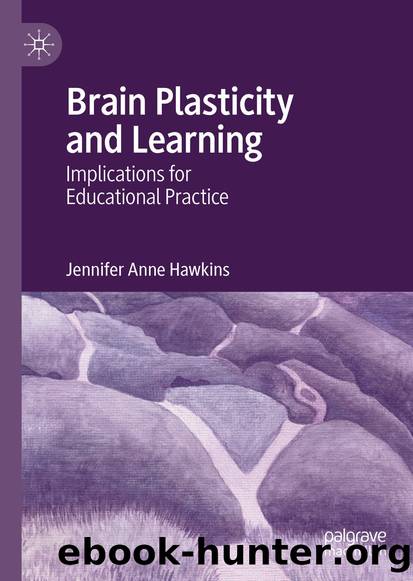Brain Plasticity and Learning by Jennifer Anne Hawkins

Author:Jennifer Anne Hawkins
Language: eng
Format: epub
ISBN: 9783030835309
Publisher: Springer International Publishing
5.3 Every Child Matters and Has Different and Similar Needs
As I researched neuroplasticity I came to realise that âwe are all part of the human family and our brain plasticity makes us all unique.â Special Educational Needs and Disability (SEND) teachers have direct experience in understanding, supporting and empowering this process. This is why in this section I look at evidence and insights from special needs education. I have the idea these might contribute fresh ideas to mainstream teaching. Good special needs education can evidence the processes involved in plasticity and ways it may fail or can be enabled. If we take seriously that all human beings have unique experiences and preferences in learning, it follows we should explain and acknowledge difference and similarity when teachers are trained. The word âspecialâ has come to be misapplied. If we accept the reality of brain plasticity in practice it should be universally applied. In other words if every child matters and is unique then every child is special. This principle should underpin all approaches to teaching rather than exist as a label or sentimental cliché. See SEND Acronyms Endnote.7
We need fundamental principles and a fair approach to every child. As we teach and parent, it is in our long-term interest to help children to become the best they can be and want to develop themselves to be. Just as we adults are challenged in our everyday lives, we should regard learners of all ages as âchallengedâ and also âspecialâ in many aspects of life including those who are âacademic.â If we want good outcomes, we should be encouraging them in a variety of ways. This is important because learners are inclined to reach inaccurate conclusions about themselves based on their treatment and experience. They should be taught that âfailingâ and changing oneâs approach to life in order to learn and move on is normal. Learners need affirmation and positive regard in order to develop their capabilities. Teachers should help all learners develop confidence including those especially talented in certain ways and neglected within the system. The ultimate judge of their own happiness should be the learner, not just by what they say but by how they behave.
Teachers can be catalysts, developing potential by recognising and researching learnersâ abilities, interests and motivations (as they relate to the core curriculum in school), whatever they may be. Teachers can research childrenâs responses through professional programmes and approaches, adjusting them with insight through experience, feedback and analysis of outcome data. Parents should also be recognised as having a special role as supporters and data collectors. Everyoneâs opinion is important even when and perhaps especially we donât agree. Education is complicated and of its nature is open to adaptation by diverse kinds of people. Teachers need to be taught to be aware of how they can develop their skills, research and adapt as they teach.
Good teachers already do this even when unacknowledged. Their data and student outcomes are reflected informally to justify their work to themselves. They
Download
This site does not store any files on its server. We only index and link to content provided by other sites. Please contact the content providers to delete copyright contents if any and email us, we'll remove relevant links or contents immediately.
Zero to IPO: Over $1 Trillion of Actionable Advice from the World's Most Successful Entrepreneurs by Frederic Kerrest(4486)
Machine Learning at Scale with H2O by Gregory Keys | David Whiting(4287)
Never by Ken Follett(3924)
Harry Potter and the Goblet Of Fire by J.K. Rowling(3838)
Ogilvy on Advertising by David Ogilvy(3588)
Shadow of Night by Deborah Harkness(3350)
The Man Who Died Twice by Richard Osman(3057)
Book of Life by Deborah Harkness(2919)
The Tipping Point by Malcolm Gladwell(2899)
Will by Will Smith(2894)
0041152001443424520 .pdf by Unknown(2841)
My Brilliant Friend by Elena Ferrante(2812)
Purple Hibiscus by Chimamanda Ngozi Adichie(2805)
How Proust Can Change Your Life by Alain De Botton(2792)
How to Pay Zero Taxes, 2018 by Jeff A. Schnepper(2639)
Hooked: A Dark, Contemporary Romance (Never After Series) by Emily McIntire(2538)
Rationality by Steven Pinker(2345)
Can't Hurt Me: Master Your Mind and Defy the Odds - Clean Edition by David Goggins(2316)
Borders by unknow(2300)
